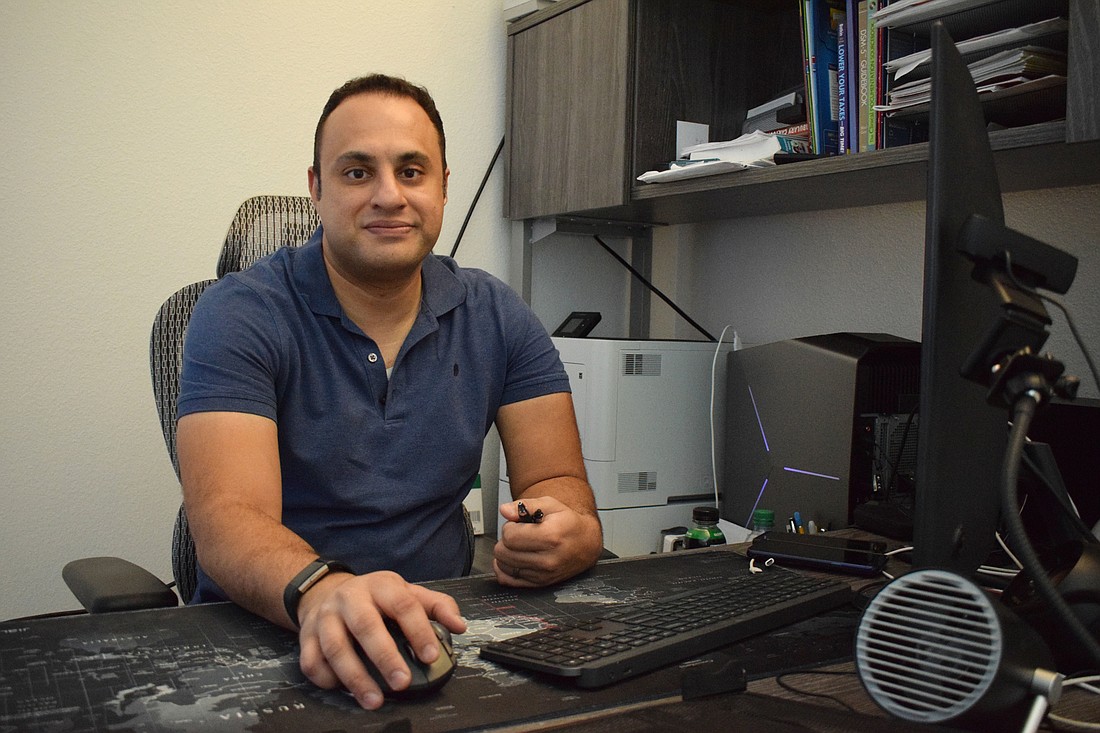- May 3, 2025
-
-
Loading

Loading

Everyone’s lives have changed over the past three months because of COVID-19.
Florida shut down for a month, which forced businesses, restaurants, bars, hair and nail salons, and more to close their doors.
Health and safety guidelines were put in place, which has caused people to follow the tape marked 6 feet apart as they stand in line at a grocery store or to wear a mask while in public.
Now the state is slowly reopening, and everyone is adjusting to a new normal, but questions remain. Should a mask be worn? Is it safe to enjoy a meal outside at a restaurant? Will children be back in a classroom come fall?
When will life go back to normal?
With all the uncertainty comes an increase in anxiety for many people.
Isolation and fear of the unknown with COVID-19 has made some underlying issues, such as depression and anxiety, come to the surface.
“Humans are built to be social creatures,” said Dr. Tariq Halim, a psychiatrist in Lakewood Ranch. “Staying indoors and locking yourself up from the rest of the world will make some more apprehensive, anxious and depressed.”
According to “Functional Fear Predicts Public Health Compliance in the COVID-19 Pandemic” from the International Journal of Mental Health and Addiction, the fear that pandemic viral infections can spread across large portions of populations could cause heightened anxiety.
“Fear is a negative emotion symptomized by extreme levels of emotive avoidance in relation to specific stimuli," the study states. "It is associated with clinical phobias and social anxiety disorder, and as such the potential for widespread public fear caused by pandemic viral infections could lead to significant levels of mental distress at the population level.”
Halim said mainstream media has also played a role in amplifying fear among people because many media outlets tend to report “extreme cases,” but learning about COVID-19 from various sources will help ease anxiety.
People with obsessive compulsive disorder symptoms based on cleanliness and organization could see themselves cleaning more and doing more to stay organized because of their worries of public transmission, Halim said.
For anyone experiencing anxiety or depression as a result of COVID-19, Halim’s most pertinent advice is to make a schedule and plan activities because it’s a form of cognitive behavioral therapy.
Using a planner relieves your mind from anxiety because it allows you to let things leave your brain to concentrate instead on more important things and to have better focus, which also helps you sleep better at night. Writing your thoughts down can help you focus on solutions, as well, instead of on the problems.
“Start making a routine because there’s no such thing as normal right now, but you do your best to get to that point for yourself,” he said. “You have to have a mindset to make this our new normal, at least for the time being. You have to understand and appreciate the fact that although we have to take these precautions, it doesn’t mean you stop doing everything you need to do.”
Many people are working from home, a deviation from their routines from before the pandemic. This change could cause people to work more and could even result in loss of sleep. Halim said people need to take necessary breaks to force themselves to step away from the computer and phone and maybe take a short walk or do yoga.
Halim suggests the Pomodoro Technique, a time management method in which work is broken down into intervals separated by short breaks.
Although people are wondering whether it’s safe to venture outside and start returning back to normal, taking a first step is important even if it means wearing a mask or abiding by social distancing guidelines.
“They don’t need to make it more complicated than it is, and once we understand that it is what we have to do, you don’t think about it as much as when you take it to the extreme, and you’re not seeing your family members,” Halim said.